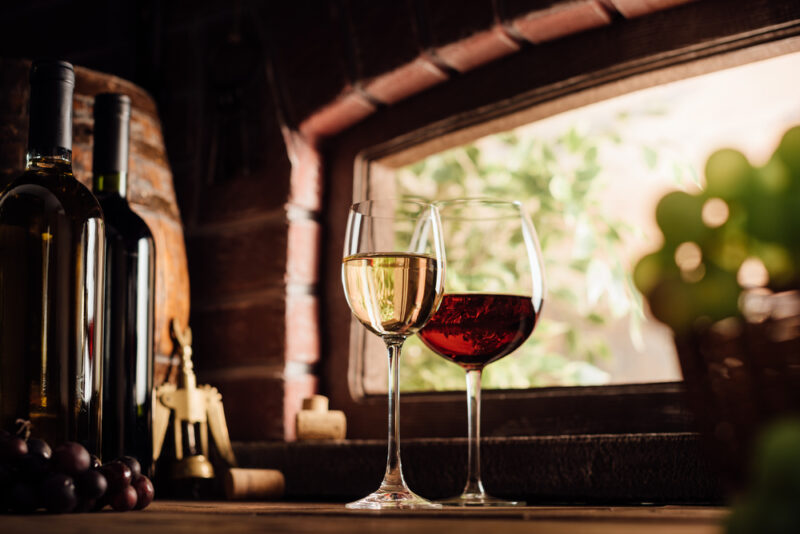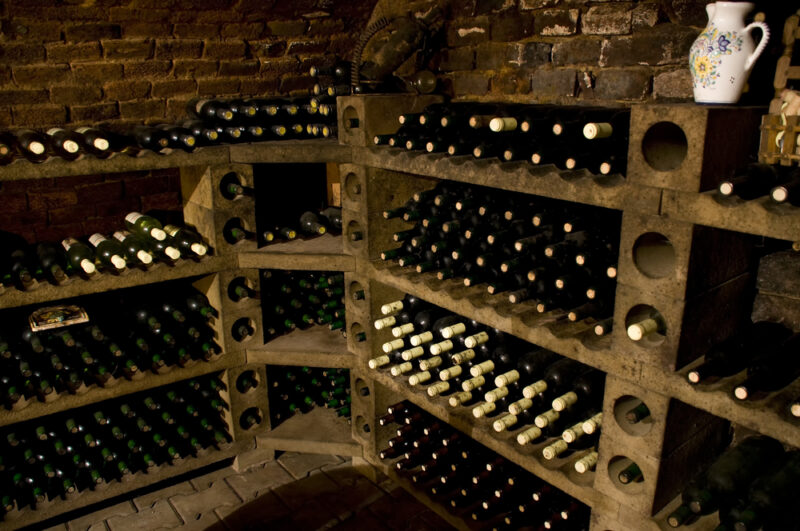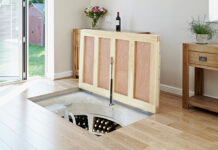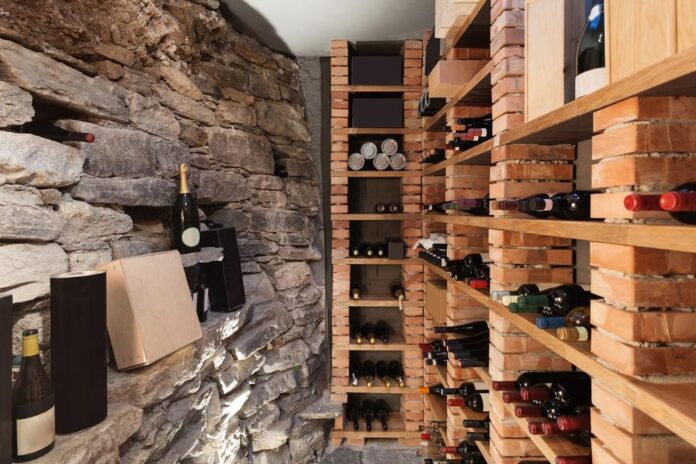
It is probably true to say that most people buy wine to drink it within hours, days, or weeks. However, some people do buy wines that are intended for aging. Not only is it cheaper, but wine lovers and collectors of fine wines derive great pleasure from storing wine over time and allowing it to improve with age.
The only issue is that if you are planning to store wine for any length of time, it must be done correctly.
How to Store Wine at Home
One of the vital factors relating to storing wine is temperature. It should be kept at a constant temperature that ideally should be between 10 and 15 degrees Celsius or 50 to 59 degrees Fahrenheit. It should never be stored above 18 degrees Celsius or 64-65 degrees Fahrenheit.
Even if people don’t have space or budget for a dedicated wine cellar it is essential to store wine in a room or environment where the temperature can be maintained. At the very least, the area will need to be reliably air-conditioned. But if you are serious about collecting wine and aging it at home you should consider consulting an experienced heat, ventilation, and air-conditioning (HVAC) engineer who can design a reliable system for your own home. This could include heating for the winter months that will keep the residents warm but still maintain the temperature of your treasured wines.
Of course, it depends where you live, but an HVAC engineer at a company like New York Engineers would be able to assist if you live in New York, Chicago, and some other parts of the U.S., and even in India, where the company has a satellite office! While the engineer (or HVAC engineering firm) you use doesn’t have to be a wine connoisseur, it might be helpful. You might even get on well enough to decide to break open something special when the system has been installed – a creative alternative to a roof wetting!
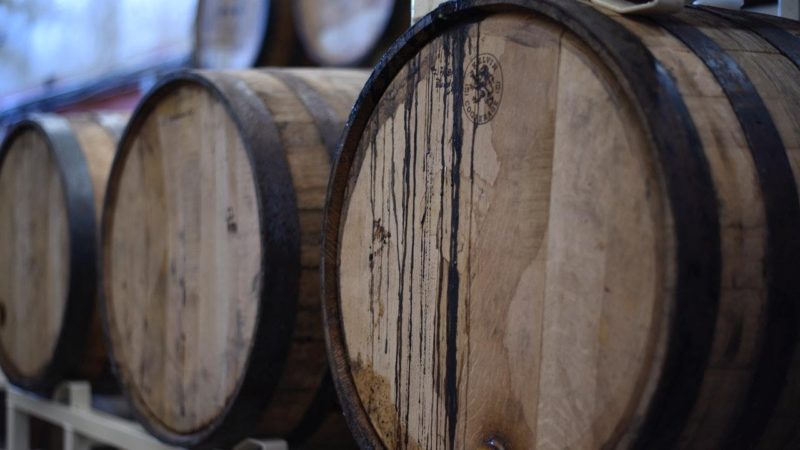
Another very important issue is that wine needs to be protected from the oxygen that occurs naturally in the air. This is why there is always an airtight seal for wine. While cheaper varieties that are not intended to be aged might be stored in bottles that have screw caps, this is never the case for really high-quality wines. Rather, they should be sealed with a traditional cork.
But there is another very important factor, if the cork dries out, it will shrink and won’t be airtight any longer. It doesn’t take rocket science to work out that if there isn’t an airtight seal, the oxygen will start to slowly seep into the bottle and it’s inevitably going to spoil the wine. This is why bottled wine has been traditionally stored on its side (particularly red wine) so that the wine keeps the cork damp and swollen.
This is also why wine in screw-capped bottles can be stored upright or at an angle if it is easier for space issues.
The Importance of Temperature and Other Conditions
HVAC engineers know why temperature is so important in our homes – and it’s not just about wine. In essence, HVAC systems control and maintain the array of necessary air conditioning and heating components that are needed to maintain the comfort and environmental safety of occupants. HVAC systems regulate temperatures inside our houses and other buildings and they also lower humidity levels, keeping moisture levels controlled.
As stated above, when storing wine for any length of time it is vital for it to be kept at a constant temperature. Any temperature fluctuations can cause a deterioration in the wine, which, if you have bought it as an investment, if only to be able to drink exceptionally good wine at a later date, could be nullified.
Wine should also be stored in dark rather than light, sunny environments. Just as heat can be damaging, so too can light, which can affect the taste of wine negatively. This is why red wine is generally sold it darker glass bottles than light, easy-to-drink young wines that are bottled in transparent glass. Simply, this wine isn’t intended to be stored for long periods of time, and conditions don’t matter as much. At the same time, don’t leave any wine on a sunny windowsill!
Humidity is important for the comfort of residents as well as wine, though, with wine, humidity is advantageous to stop corks from drying out.
The Best Place to Store Your Wine
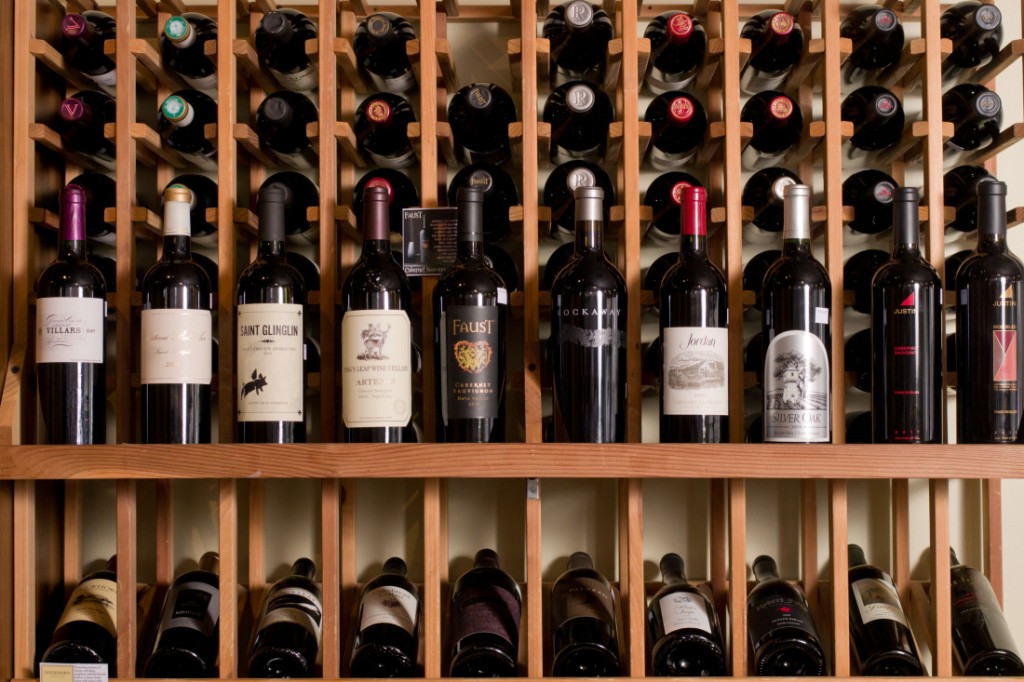
The idea of a cool, moody wine cellar, with walls lined with wine racks that are filled with good quality wine either aging or ready-to-drink, is a concept that cannot fail to attract serious wine connoisseurs. But very few people today have space or budget for a traditional wine cellar or the wine that would be needed to fill it.

